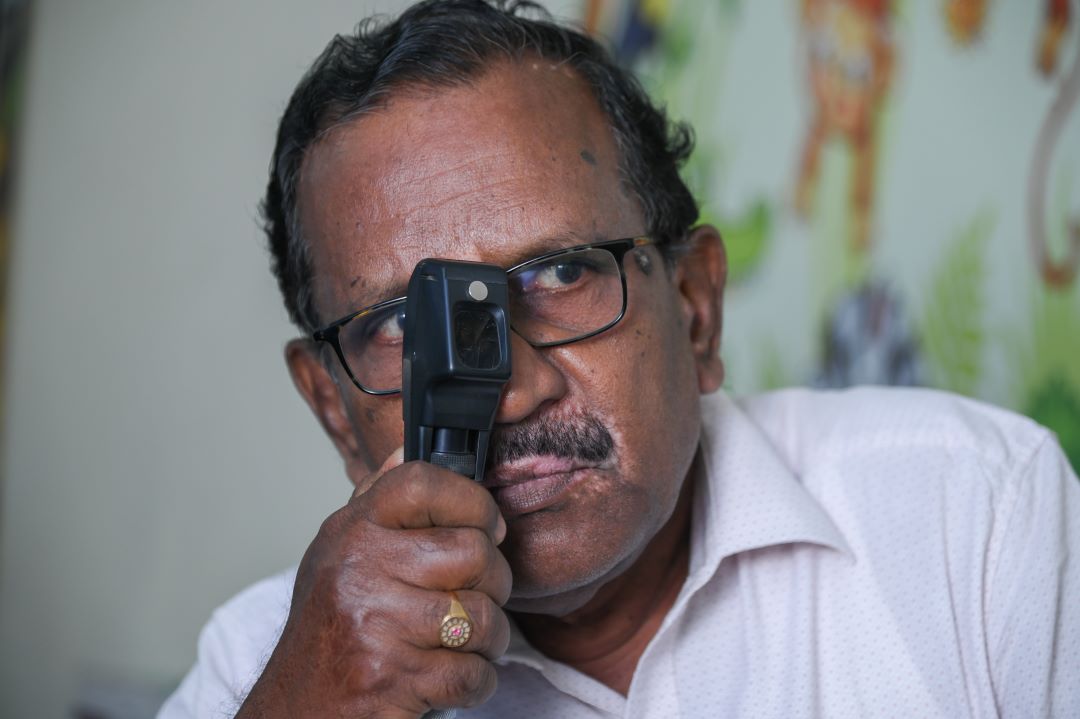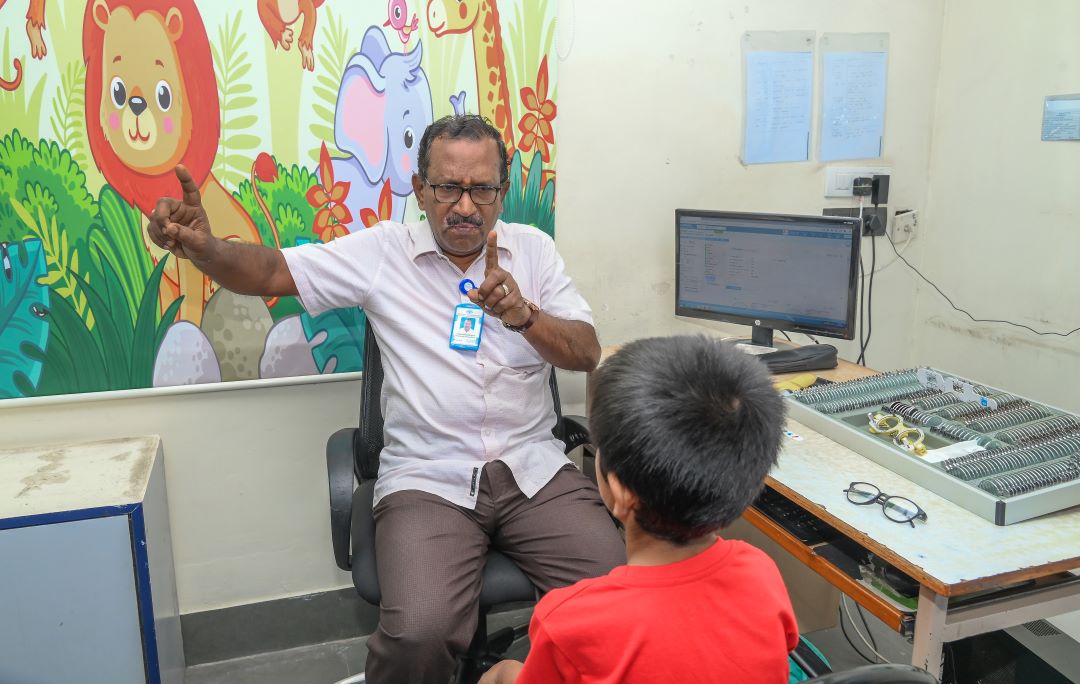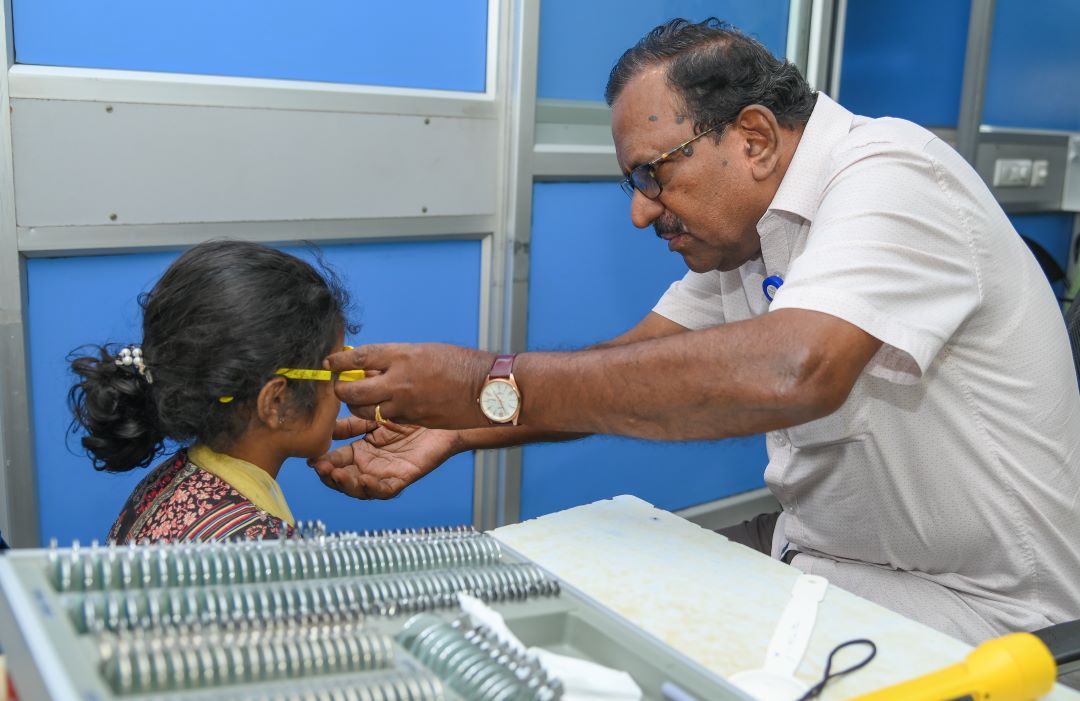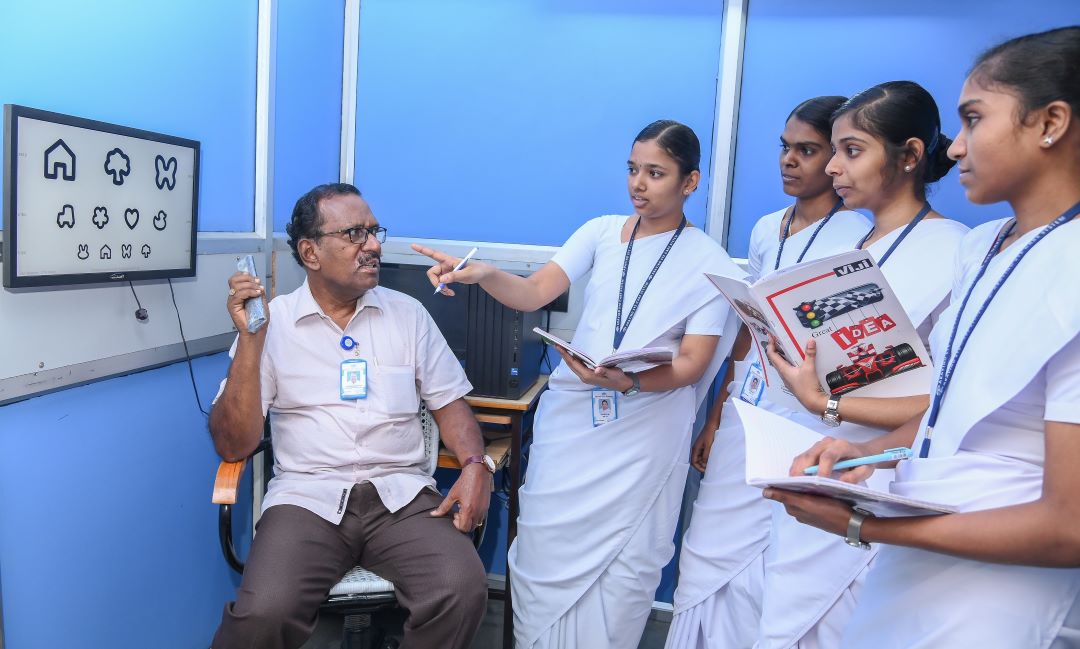In Tamil Nadu’s village streets where medical care often feels out of reach, Muthuramalingam now 67, has dedicated nearly to fifty years bringing vision to the underserved. His journey began in 1977, with a random encounter that turned into a lifelong mission — restoring sight, one pair of eyeglasses, one child, one elderly villager at a time. What started as a simple act of kindness grew into a lifelong pursuit, transforming thousands of lives across rural India.
“I thought I’d just end up as a postmaster in my hometown,” says Muthuramalingam with a soft chuckle. “But life had other plans”.

It all began at a Lions Club eye camp, where Muthuramalingam got involved in helping as a volunteer. He had no medical training, only a strong desire to help. His dedication caught the attention of visiting doctors and trainers who saw potential in him. Encouraged by their support, he began learning about eye care and refraction—planting the seeds of what would become his life’s mission.
That decision changed his life and brought hope to countless others. Armed with simple tools and a firm resolve, Muthuramalingam rode his bicycle from one village to another, transforming school verandas and shaded spots beneath trees into makeshift clinics. His goal was clear: to restore sight to those overlooked by regular healthcare.
“Eye care is not just treating vision,” he says. “It is giving people a whole new life.”

Over the years, he witnessed community eye care evolve – from humble beginnings with basic tools to well-equipped camps with trained teams and modern facilities. Still, the heart of the work stayed focused on reaching people who needed help the most.
One of Muthuramalingam’s most cherished memeories comes from a school screening in Melur, a town near Madurai. There, he met a 12-year-old boy who struggled in school and appeared withdrawn. The reason: a severe refractive error. “Once he started wearing eyeglasses, he became one of the best students in his class,” Muthuramalingam recalls with pride in his voice. “That single pair of eyeglasses completely changed his path in life.”

Muthuramalingam estimates that over his decades-long career, he has screened and treated tens of thousands across Tamil Nadu. From Madurai to Salem, Erode to Coimbatore, he has travelled tirelessly, village by village, ensuring that no one is left in the dark.
.jpg?sfvrsn=c30934f5_3)
The journey has not been easy – marked by cultural barriers, grueling travel. and constant exhaustion. Yet, the community trust and the visible impact keep him going. “Back then, we handled everything—planning, counseling, and eye exams. Now there’s support, but the mission remains the same,” he says.
Muthuramalingam still organizes school screenings and guides families through care. What motivates him to keep going? “A child smiling after seeing for the first time. That’s all I need,” he says.

As India grapples with rising preventable vision problems, his journey highlights the crucial role of grassroots health workers . “We can’t sit back and wait for people to come to the hospitals,” he explains. “We have to reach them. That’s how we build stronger, healthier communities .”
In a time when most step back from work, Muthuramalingam refuses to slow down. “The body might feel its age,” he says, “but the spirit should never get tired.”
Community health workers (CHWs) are health care providers who live in the communities they serve and typically receive less formal education and training than professional health care workers such as nurses and doctors. They provide health education and referrals for a wide range of services, and support individuals, families, and communities with preventive health measures and access to appropriate curative and social services. CHWs act as a vital bridge between health, social, and community services and populations that may have difficulty accessing care. This human resource group has enormous potential to extend health care services to vulnerable populations, such as communities living in remote areas and historically marginalized groups, to meet unmet health needs in a culturally appropriate manner, improve access to services, address inequities in health status, and improve health system performance and efficiency.
This story was developed based on an interview conducted and photographed by Aravind Eye Foundation.
